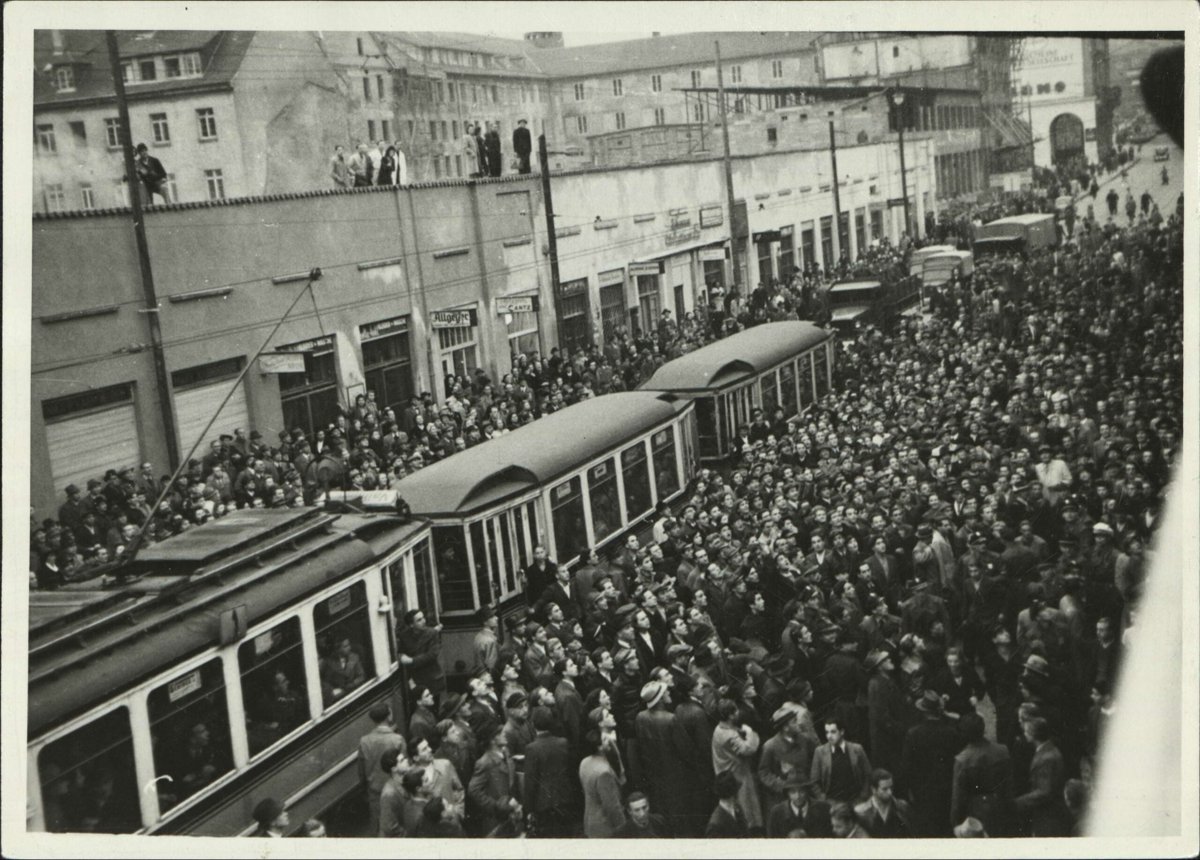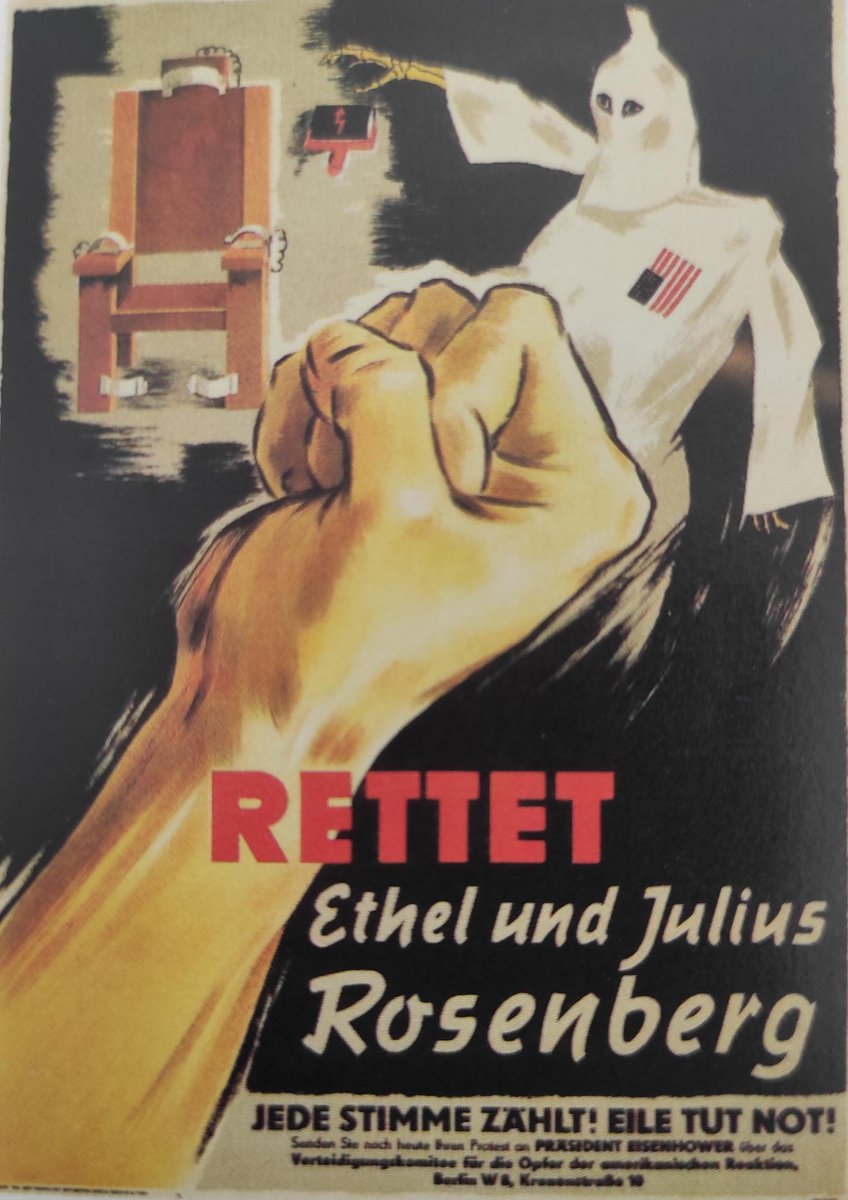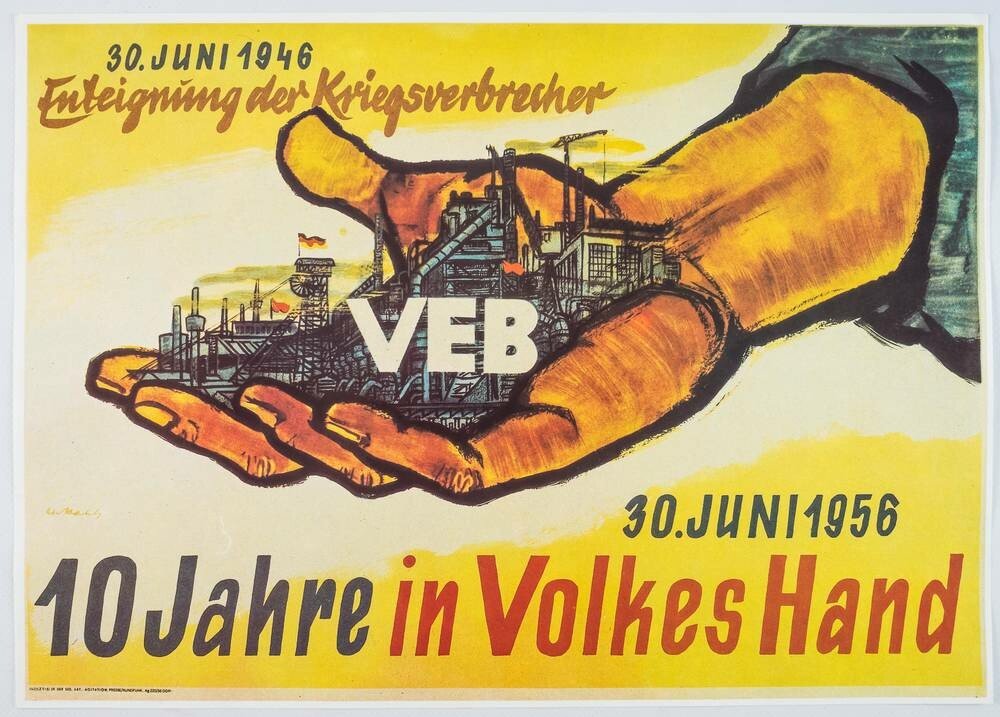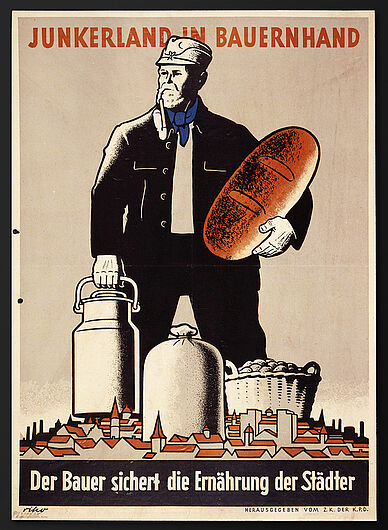Unrest in West Germany: On 20 June 1948, a secretly planned economic reform is implemented in the Western occupied zones of Germany. A new USD-tied currency (the “Deutsche Mark”) is introduced to facilitate the flow of US capital into Germany as part of the Marshall Plan.
🧵 1/
🧵 1/

This currency reform has two major consequences. First, it triggers a massive increase in prices throughout the economy, as pre-existing price controls are swept away, and wages remain frozen.
(Photo: Munich, August 1948)
2/
(Photo: Munich, August 1948)
2/

Months of social unrest follow. In October 1948, the US military even resorts to the deployment of tanks and tear gas to disperse protesters calling for the nationalization of industries in Stuttgart.
3/
3/

A massive general strike follows a month later, calling for the introduction of economic planning in the industrial sector and nationalization of basic industries and credit institutions.
4/
4/

The French authorities simply ban the strike in their occupied zone.
In the British and American zones, around 9 million workers (72% of the workforce) lay down their tools, making it the largest strike in Germany since the Kapp Putsch of 1920.
5/
In the British and American zones, around 9 million workers (72% of the workforce) lay down their tools, making it the largest strike in Germany since the Kapp Putsch of 1920.
5/
The second consequence of the reform was to establish an exclusive West German economic sphere from which the Soviet occupied zone in East Germany was excluded.
6/
6/

The reform thus represents a profound breach of the Potsdam Agreement signed by the Allied powers in August 1945, which states that “during the period of occupation, Germany is to be regarded as a single economic entity”.
This step all but cements the division of Germany.
7/
This step all but cements the division of Germany.
7/
In this article, we traced out the development of socialist strategies in post-war Germany against the background of the capitalist powers’ efforts to divide the country between East and West: ifddr.org/en/neutral-dem…
#OTD
8/8
#OTD
8/8
• • •
Missing some Tweet in this thread? You can try to
force a refresh

 Read on Twitter
Read on Twitter












